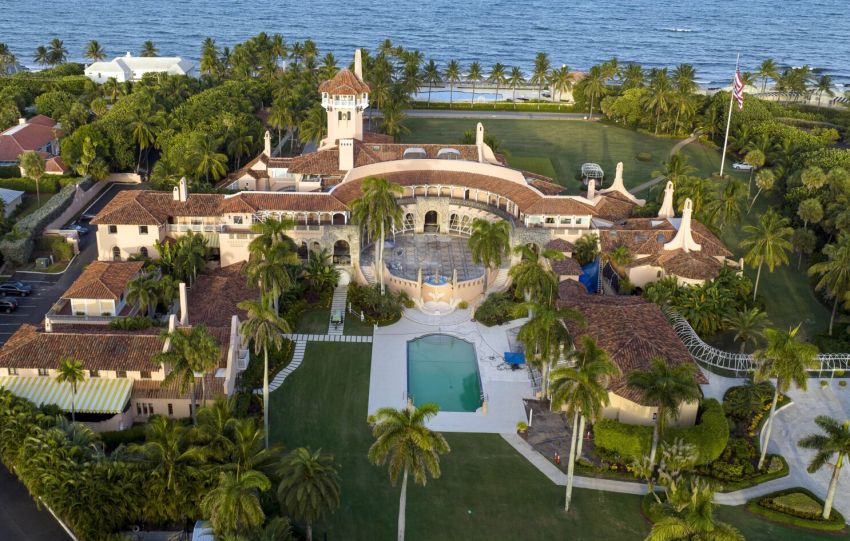Key Takeaways
- The luxury real estate market in Washington, D.C., is experiencing a significant boost, often referred to as the “Trump Bump,” due to an influx of wealthy political figures and advisors.
- Jim Bell, an experienced real estate executive, has noted a never-before-seen scale of high-net-worth individuals purchasing luxury properties since the recent election.
- The new political appointees are estimated to have a combined net worth exceeding $450 billion, influencing a surge in the market.
- Daniel Heider describes this period as a “Trump surge,” attributing the high demand in part to the incoming administration members seeking luxury homes.
- The recent surge includes more than 56 homes valued at $4 million and above that went under contract or sold since Election Day.
- A notable transaction includes the $25 million cash purchase of Bret Baier’s estate, marking the highest residential transaction in D.C.’s history.
- More than 51% of luxury transactions in the region last year were all-cash, indicating the financial capability of the buyers.
- High-profile neighborhoods like Georgetown and Kalorama are the focus for affluent buyers, where the provenance and suitability for hosting events are major considerations.
- The shadow market plays a significant role, where privacy and discretion are prioritized, depriving traditional listing methods of some exclusivity sales.
- Despite the high price tags, D.C. is seen as a bargain compared to other luxury markets like Manhattan or San Francisco.
The Washington, D.C. real estate market has always been dynamic, but recent developments suggest it is experiencing an unprecedented surge. This phenomenon, colloquially known as the “Trump Bump,” has seen an influx of wealthy individuals snatching up luxury properties in the nation’s capital. Let’s delve into the intricacies of this market shift and examine what it means for the real estate landscape in D.C.
Understanding the Luxury Market Surge
The Influence of Political Appointees
The surge in Washington’s luxury real estate market has been significantly influenced by high-net-worth individuals from the political realm. New appointees in the administration, whose estimated combined net worth exceeds $450 billion, are making waves by investing in luxury properties. This influx is not only driving up demand but also redefining market dynamics.
Record-Breaking Transactions and Trends
Analyst and real estate executive Jim Bell has observed a never-before-seen scale of high-end purchases since the recent election. Daniel Heider, another prominent figure in the real estate realm, describes this period as a “Trump surge.” This past year alone, more than 56 homes valued at $4 million and above have either gone under contract or been sold. Notably, the $25 million cash purchase of Bret Baier’s estate is now the priciest residential transaction ever in D.C., demonstrating the buying power of these newcomers.
Key Factors Driving the Surge
- Wealthy Buyers’ Financial Capability: Over 51% of transactions in the luxury segment have been all-cash deals, highlighting the financial heft of these buyers.
- Attractive Market Position: Despite the premium prices, D.C. is perceived as a relative bargain compared to real estate markets in areas like Manhattan and San Francisco. This perception is drawing affluent buyers who view D.C. as an opportunity for strategic investment.
- The Shadow Market: Privacy is paramount for many of these buyers, leading to increased activity in the shadow market—where properties change hands discreetly, often through private arrangements and LLCs, eschewing traditional listing services.
High-Profile Neighborhoods
A significant focus for these affluent buyers lies in high-profile neighborhoods such as Georgetown, Kalorama, Wesley Heights, Massachusetts Avenue Heights, Berkley, and Kent. These areas are not only known for their historical and architectural allure but also provide the requisite privacy and space for hosting events, which is crucial for individuals with political and social ambitions.
Future Projections and Market Implications
The “Trump Bump” raises questions about the sustainability of this market activity. The influx of wealthy individuals is likely to have lasting effects, including heightened property values and, potentially, a shift in the socio-economic composition of D.C. neighborhoods.
As more political figures and entrepreneurs discover the advantages of investing in D.C., the city’s status as a real estate hotspot is likely to become more entrenched. Real estate professionals and prospective buyers will be keenly observing this trend, watching for changes that could redefine the capital’s luxury market landscape.





